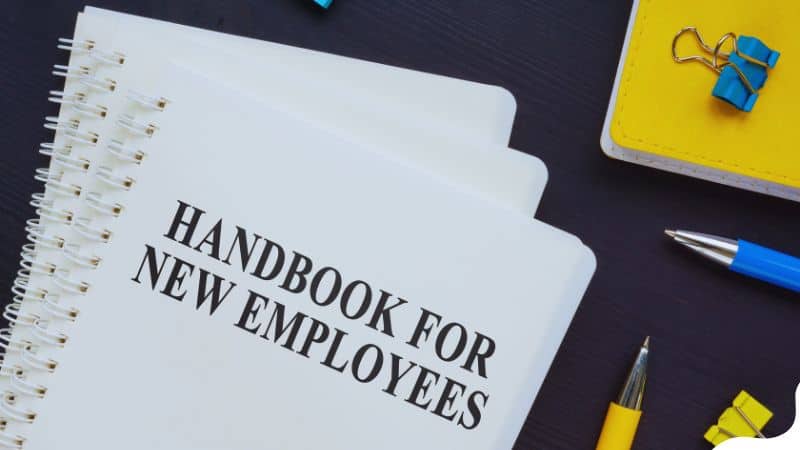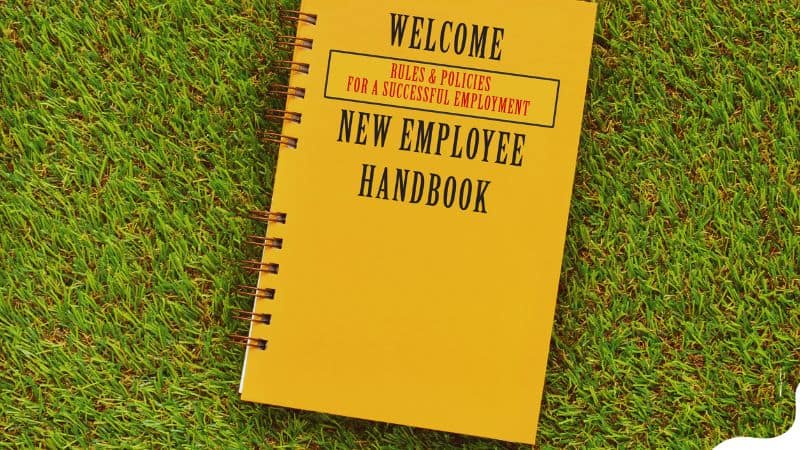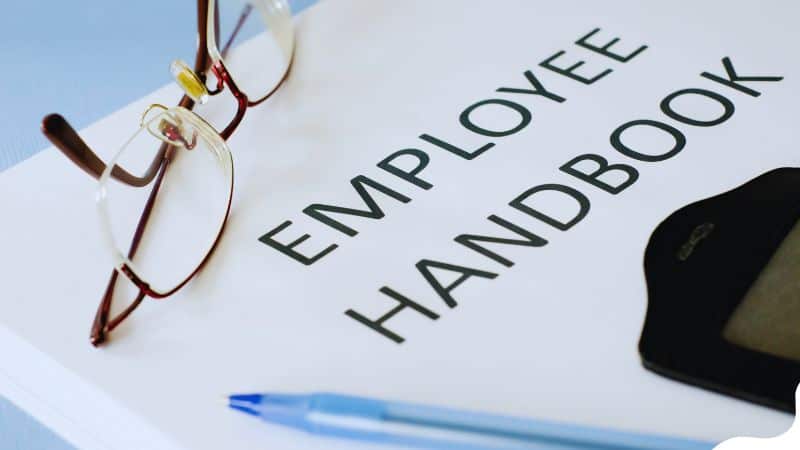An employee handbook is a living document because it’s constantly updated to reflect changes in the workplace, laws, and company policies. Just like a living organism adapts to its environment, the handbook evolves to stay relevant and useful for both the company and its employees.
Workplaces change—new technologies, regulations, or practices emerge. By regularly updating the handbook, companies ensure it stays aligned with these shifts, offering clear guidance for employees.
This adaptability makes the handbook an essential tool for maintaining clarity, consistency, and fairness in the workplace. It grows and evolves alongside the company, making it a practical and current resource.
What are amendments?
Amendments to an employee handbook are changes or updates made to the original guidelines, policies, or rules. These adjustments can be in response to new laws, company growth, or evolving workplace needs. Regular updates keep the handbook relevant.
Including amendments is important because it ensures employees are aware of new rules and procedures. It helps maintain a fair and consistent work environment.
Clear communication of amendments avoids confusion and protects both the company and employees from legal issues.
Step 1: Explain the Need for Amendments
Begin by explaining why amendments to the employee handbook might be necessary. This could be due to changes in company policies, updates to comply with new laws, or the introduction of new benefits or procedures.
Example:
“The employee handbook is a living document that may be updated to reflect changes in company policies, compliance with new laws, or the introduction of new benefits and procedures. It’s important that our handbook remains relevant and accurate, ensuring that all employees have access to the most current information.”
Great leadership isn’t an event—it’s a habit. Get actionable leadership habits every Monday and Thursday.
Step 2: Outline the Amendment Process
Describe the process your company follows to make amendments to the handbook. This should include who is responsible for drafting and approving changes, how often reviews are conducted, and how changes are communicated to employees.
Example:
“Amendments to the employee handbook are initiated by the HR department, with input from relevant departments and approval from senior management. The handbook is reviewed annually, or as needed, to ensure that all information is up-to-date. Once an amendment is approved, the updated version of the handbook will be distributed to all employees.”
Step 3: Communicate Changes to Employees
Detail how employees will be informed of any changes to the handbook. This could involve distributing printed copies, sending electronic updates, or holding meetings to explain significant changes. Make sure employees know how to access the most current version of the handbook.
Example:
“Employees will be notified of any changes to the handbook through email, and an updated version will be made available on the company’s internal portal. For significant changes, HR will hold informational meetings to explain the updates and answer any questions. Employees are encouraged to review the updated handbook regularly to stay informed of any new policies or procedures.”
Step 4: Acknowledge Employee Responsibility
Remind employees that it’s their responsibility to stay informed about the handbook’s contents and any updates. Encourage them to reach out if they have questions about any changes.
Example:
“It is the responsibility of each employee to review the handbook and stay informed about any updates. If you have any questions or need clarification on any of the policies, please contact HR. By staying informed, you help ensure a smooth and compliant work environment.”
Step 5: Include an Acknowledgment of Receipt
Finally, include a section where employees acknowledge that they have received and reviewed any updates to the handbook. This can be a physical or electronic form that employees sign and return to HR.
Example:
“Employees will be asked to sign an acknowledgment form whenever significant updates to the handbook are made. This form confirms that you have received, reviewed, and understand the changes. A copy of the signed acknowledgment will be kept in your personnel file.”
Sample Chapter 12
Chapter 12: Amendments to the Employee Handbook
Need for Amendments
The employee handbook is a living document that may be updated to reflect changes in company policies, compliance with new laws, or the introduction of new benefits and procedures. It’s important that our handbook remains relevant and accurate, ensuring that all employees have access to the most current information.
Amendment Process
Amendments to the employee handbook are initiated by the HR department, with input from relevant departments and approval from senior management. The handbook is reviewed annually, or as needed, to ensure that all information is up-to-date. Once an amendment is approved, the updated version of the handbook will be distributed to all employees.
Communication of Changes
Employees will be notified of any changes to the handbook through email, and an updated version will be made available on the company’s internal portal. For significant changes, HR will hold informational meetings to explain the updates and answer any questions. Employees are encouraged to review the updated handbook regularly to stay informed of any new policies or procedures.
Employee Responsibility
It is the responsibility of each employee to review the handbook and stay informed about any updates. If you have any questions or need clarification on any of the policies, please contact HR. By staying informed, you help ensure a smooth and compliant work environment.
Acknowledgment of Receipt
Employees will be asked to sign an acknowledgment form whenever significant updates to the handbook are made. This form confirms that you have received, reviewed, and understand the changes. A copy of the signed acknowledgment will be kept in your personnel file.









